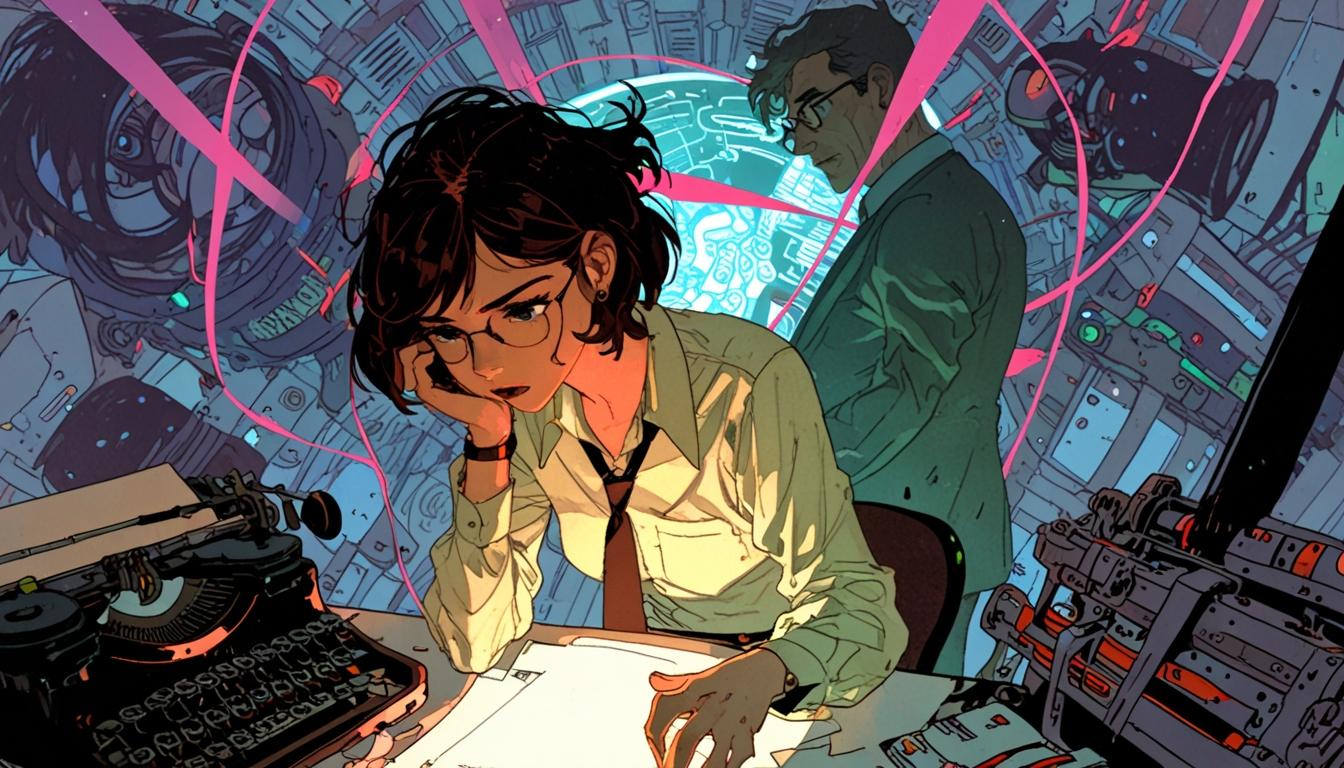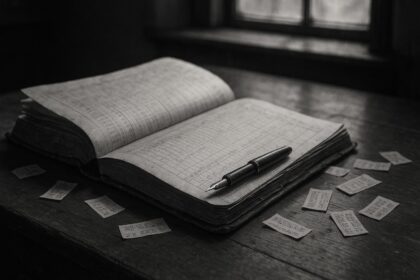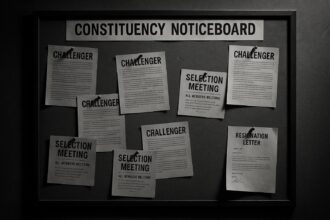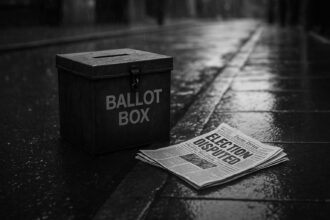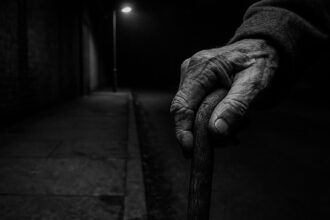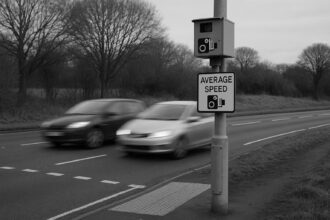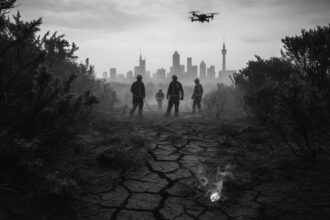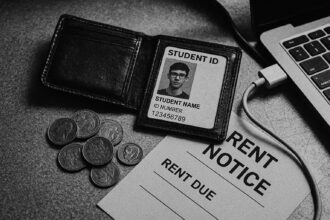A reflection on the challenges posed by artificial intelligence in the writing profession and the implications for creativity and authorship.
The Irish Examiner has recently published a reflection on the pervasive influence of artificial intelligence (AI) in creative fields, particularly concerning the writing profession. The piece articulates a strong scepticism towards the integration of AI into the writing process and raises concerns over its implications for authors and the integrity of creative work.
The writer identifies with the mindset of the Luddites, suggesting a wariness towards new technologies that have the potential to dominate the creative landscape. They express frustration at the ubiquity of AI, noting that upon subscribing to Microsoft, they encountered built-in AI features that they were unable to disable. This feeling of being overwhelmed by technology is likened to being persistently “dive-bombed by a fly,” illustrating the author’s discomfort with the seeming inevitability of AI within modern software.
An anecdote from the author’s time in Cairo underscores the notion of derivation in creative expression. They recount a humorous moment of disagreement about the location of a museum, which culminated in a realisation about the historical connections between French aristocrats and ancient Egyptian influences. This reflection serves to highlight the author’s belief that creativity is inherently mimetic and often grounded in shared ideas.
While conceding some advantages of AI, such as improved efficiency in brainstorming and administrative tasks like compiling footnotes, the author simultaneously critiques the risk it poses to original thinking. They reflect on broader societal changes brought about by technology, comparing the convenience of modern transport to the toll of decreased physical activity on personal health. This metaphor extends into the realm of creative work, where the author fears that reliance on AI may lead to intellectual laziness—a reduction in the exercise of human capacidade in creative thinking.
The discussion culminates in a pointed critique of the growing practice of tech companies leveraging writers’ contributions without adequate compensation or recognition. The author draws parallels to the legal concept of “passing off,” arguing that tech giants are misappropriating the creativity and labour of writers while offering nothing in return. The sentiment is further underscored by the expectation that a number of high-profile authors are pursuing class action lawsuits against OpenAI, the developer of ChatGPT, for these very grievances.
In envisioning a return to the legal profession, the author nostalgically recalls a time before the internet, when research was conducted in more traditional ways—using dictaphones and pen and paper. They express a desire to engage in litigation surrounding these issues, pointing to the significant divide between creative contributors and powerful tech monopolies. The piece concludes with a cynical observation on the ethical standards dictated by affluent tech firms, highlighting the underlying capitalist motives that complicate the relationship between AI and creative work.
This exploration provides an in-depth viewpoint on the tensions between technological advancement and creative integrity, leaving readers to consider the future of writing in an increasingly automated landscape.
Source: Noah Wire Services
- https://authorsguild.org/advocacy/artificial-intelligence/impact/ – This URL supports the skepticism towards AI’s impact on creative fields, emphasizing AI-generated works as mimicry of human expression. It also touches on the ethical implications of AI in creative professions.
- https://www.brookings.edu/articles/five-hollywood-writers-discuss-ais-impact-on-their-careers/ – This article corroborates the concern over AI’s influence in writing careers, particularly in the context of labor disputes and the need for protections against AI’s extensive impact on writers.
- https://www.marketingaiinstitute.com/blog/impact-of-ai-on-writing-careers – This URL highlights the dual impact of AI on writing careers: it can enhance efficiency and creativity but also poses challenges that require writers to adapt to new tools and strategies. It emphasizes the importance of learning about AI technology for career advancement.
- https://statenews.com/article/2023/10/the-start-of-a-dystopia-experts-students-discuss-ais-impact-on-writing-careers?ct=content_open&cv=cbox_latest – This article supports the notion that AI will significantly affect the writing industry, potentially leading to job losses, while also highlighting the evolving role of AI in writing.
- https://www.prsa.org/article/surviving-in-the-age-of-ai-writing – This piece corroborates the idea that AI can both augment human writers by automating tasks and pose a challenge by generating high-quality content, requiring writers to focus on creative aspects.
Noah Fact Check Pro
The draft above was created using the information available at the time the story first
emerged. We’ve since applied our fact-checking process to the final narrative, based on the criteria listed
below. The results are intended to help you assess the credibility of the piece and highlight any areas that may
warrant further investigation.
Freshness check
Score:
8
Notes:
The narrative contains fresh perspectives on the integration of AI into writing, though it references ongoing legal grievances against OpenAI, which suggests it could be part of a broader, ongoing discussion.
Quotes check
Score:
0
Notes:
No direct quotes are provided in the narrative to verify.
Source reliability
Score:
7
Notes:
The narrative originates from The Irish Examiner, a reputable publication. However, without specific attribution or detailed credentials of the author, it lacks full certainty.
Plausability check
Score:
9
Notes:
The claims regarding the impact of AI on creative work, legal challenges, and societal changes are plausible and align with current debates. There is a lack of specific evidence to confirm the legal actions mentioned.
Overall assessment
Verdict (FAIL, OPEN, PASS): OPEN
Confidence (LOW, MEDIUM, HIGH): MEDIUM
Summary:
While the narrative is generally plausible and comes from a reliable publication, it lacks concrete evidence for certain claims, such as legal actions against OpenAI. The absence of direct quotes and specific details also reduces confidence in its originality.


